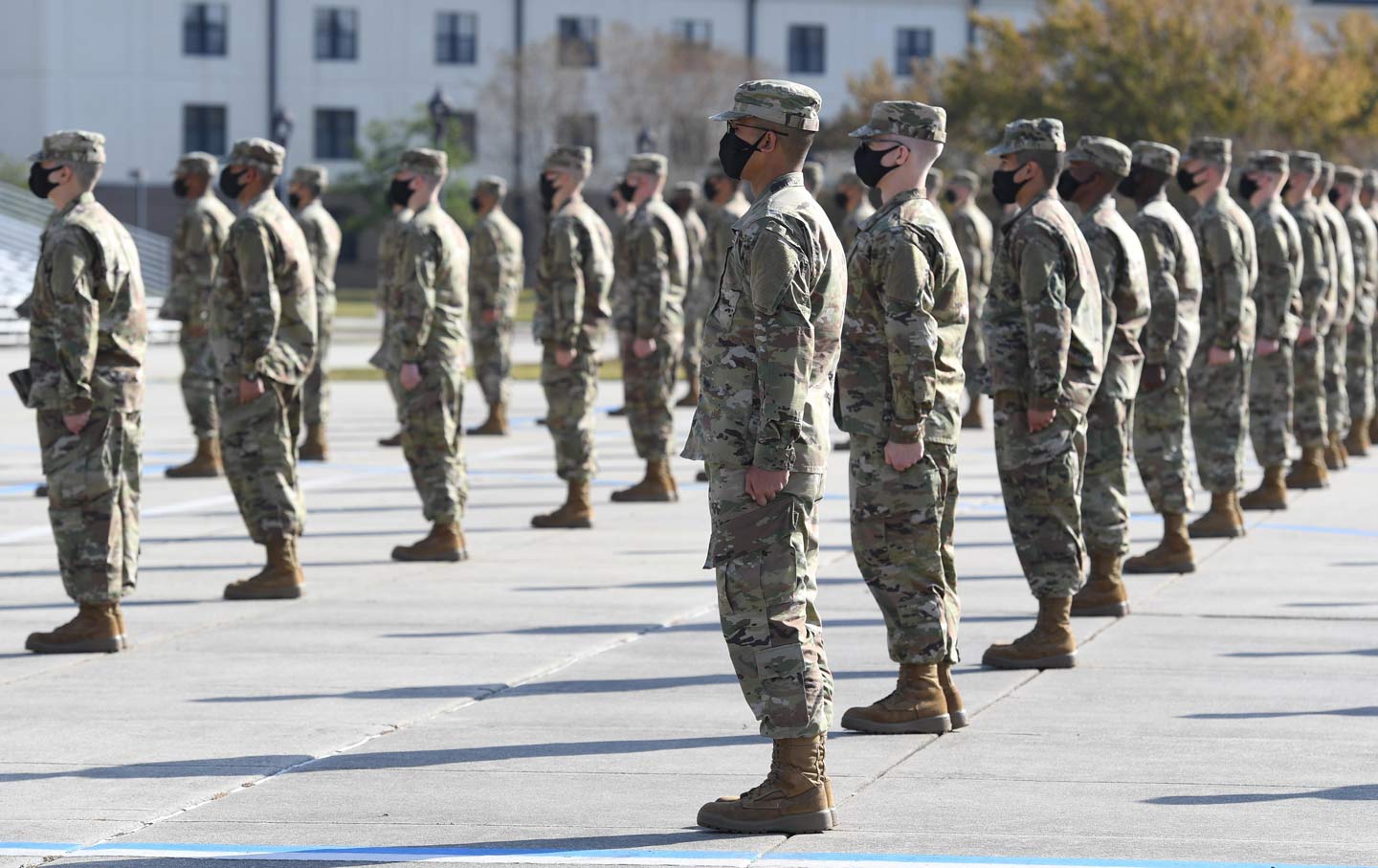
Service members aren’t getting the vaccine. That’s a problem, and it’s more complex than you ‘d expect.
About one-third of military service members are refusing to take the coronavirus vaccine. In some units, rejection rates go beyond half of members. At a time when the infection remains as unsafe as ever, this is bananas. Yet the military says troops who decrease the vaccine will face no consequences or changes to their assigned tasks, meaning even uninoculated troops will remain deployable around the country and the world. What the hell is going on?
The offer is, federal law prohibits the mandatory application of medicines within the armed force that are not totally certified by the United States Food and Drug Administration. The 3 coronavirus vaccines presently readily available in the United States– the Pfizer-BioNTech, Moderna, and, since Saturday, the Johnson & Johnson variations– are approved on “emergency situation usage permissions,” suggesting the drugs are technically still experimental. Full approval could take years, during which time hundreds of countless service members will obviously remain vulnerable to, and potentially vectors of, Covid-19
There’s good factor for this law– the federal government and military have nasty histories of exploring on people, including service members, without their understanding or consent– and in fact it’s been put to the test.
Suits took place, and in 2004 the D.C. Circuit court identified that the government had actually breached federal law by mandating the medication, specifically due to the fact that the vaccine in concern was shown to prevent cutaneous anthrax infection, though the military looked for to avoid against inhalation anthrax, the most lethal kind of the disease and the one most likely to be associated with a bio-attack. The FDA hadn’t properly studied the vaccine’s usage against inhalation anthrax, the court discovered, indicating it didn’t fulfill the requirement for necessary military circulation.
Following more testing, compulsory anthrax vaccinations resumed in 2007, with troops running the risk of court-martial and even separation from the service if they refused the vaccine.
With the coronavirus vaccine, the Pentagon surely would want to avoid comparable, lengthy legal battles. Military leaders have actually expressed aggravation at low vaccine approval rates– the AP reported they had actually hoped the military may serve as an example to the public.
First, throughout the last major anthrax scare in the United States, in 2001, the disease eliminated 5 individuals
Second, anthrax is not contagious. That in mind, it’s worth keeping in mind the military is an extremely mobile profession, and that service members aren’t self-contained on bases.
It’s not clear if service members refusing the vaccine will participate in the military’s efforts to disperse the vaccine locally, though that would be paradoxical. I asked the Pentagon about this. “That’s an excellent concern,” a public affairs officer told me, though an emailed request for more remark was ultimately not addressed.
By contrast, proof from large vaccine trials and more than 24 million finished vaccinations in the United States so far reveal that the coronavirus vaccines are very safe (though the second doses of the Pfizer and Moderna vaccines can pack a wallop). Worries about side impacts from the coronavirus vaccine are just natural, and military leaders need to resolve them compassionately. Some members declining the vaccine are rather citing false information, such as that the vaccine is a tracking gadget (it isn’t); partisan objections, in the exact same way that some Republicans see masks as a political declaration; and even the novelty of self-determination.
One commanding officer in the Washington, D.C., area informed me that the optional vaccine has also opened a door to apparent partisanship and false information in the ranks. In any other scenario, it would be incumbent on a leader to squash rhetoric like this, as a matter of what the military calls “excellent order and discipline.”.
If a member who declines the vaccine winds up screening positive for the virus– not an unlikely scenario, with cases still high– that individual is of course moved to quarantine. An unequal concern in turn falls on soldiers who did take the vaccine, who should flex to cover the infected member’s responsibilities.
The law does supply one way around the informed-consent requirement for the military with experimental drugs: The president can waive that requirement, if it is considered in the very best interest of service members or national security to do so. I will not presume to state President Biden should do this, but the concern feels deserving of consideration.
More almost, and quickly, the Defense Department ought to give additional tools to military leaders to help force vaccine approval. The military could present rewards for taking the vaccine, in the type of a financial perk– like some US business have done— or time off (the military likes time off). Or, without making the vaccine compulsory, commanders might be empowered to relegate subordinates who refuse the vaccine to a restricted set of duties. Those troops could likewise be required to reside on base, in barracks, up until they get the vaccine. (To readers not in the know: This is a near-nuclear tip; it would have the wanted result.) Significantly, the latter 2 propositions should not be considered as reprisal. They’re commonsense procedures, to the advantage of public health. And common sense, at least, should not be optional.
No comments:
Post a Comment